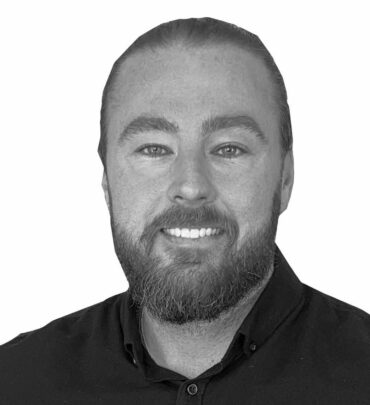The science-back supplements for PCOS
Unfiltered sat down with Drew Baird, AKA The PCOS Mentor, to discover how a self-confessed gym bro become of social media’s most trusted and respected experts on Polycystic Ovary Syndrome, and what he rates as the best supplements for PCOS sufferers.
This transcript has been taken from our video interview with The PCOS Mentor. It has been edited for clarity and brevity. You can watch the full video interview here.
Which supplements are the most beneficial to women with PCOS, according to the latest research?
The wonderful thing is there is a lot of research into supplements for PCOS. On one hand that’s very exciting because it means you have options and there’s always the lowest-hanging fruit.
Supplements aren’t magic, so don’t just take a supplement without changing anything else, thinking it’s going to be a magic bullet. As I always say, a supplement can really help if it’s part of an overall plan for your PCOS.
But on the other hand, because there are so many supplements – probably 15 to 20 supplements – that have positive research behind them in helping with PCOS, it can be very overwhelming.
Remember, most women with PCOS don’t understand it. So they could go on social media and see seven or eight different supplements recommended for PCOS, but you don’t understand that they’re doing different things.
So the big ones for PCOS, will be inositol, which helps with insulin resistance, as well as berberine, for the same reason.
Common nutrient deficiencies in PCOS are vitamin D, zinc and magnesium, which is why all of those three can really help, to maintain optimum levels of those essential nutrients.
For a lot of women with PCOS, insulin resistance is really at the root of their symptoms. So if you can improve insulin resistance, you can improve a lot of aspects of your PCOS, which is why things like inositol or berberine can be very beneficial.
Is there any promising new research about other supplements for PCOS?
L-carnitine is probably emerging as the one supplement that has a large amount of research behind it showing it improves insulin resistance, and can also aid weight loss. Now, it obviously doesn’t burn more calories [in isolation] but it may improve mood and sleep and energy.
If someone’s wanting to lose weight and they’re not sleeping well, they’re in a crap mood. they have no energy, they’re not going to be eating well and they’re not going to be exercising intensely, or at all.
So if you can take something that helps you stick to your diet better – and happily stick to your diet – exercise more regularly and more intensely, that’s going to help with weight loss.
Are there any other supplements for PCOS?
Inositol, berberine, vitamin D, zinc, magnesium and L-carnitine are the big ones but there are a number of other supplements that may help.
But you have to understand your PCOS and your goals. That will help you decide which supplement may be right for you. Because if you’re looking to improve insulin resistance, inositol or berberine might be a fantastic choice. But if you don’t have issues with insulin resistance those supplements are going to be a complete waste of time for you. So just have to understand how your PCOS works, what your goals are, and then decide what supplement may be right for you.
Why did you launch a supplements for PCOS business?
I was working with a client and sent her to the local supplement shop to buy a couple of products: zinc and magnesium. It should have cost maybe 40 bucks. But when she got there she spend 450 bucks before the guy working there convinced her to buy a ton of supplements she didn’t need. Pre-workout, BCAAs, two types of protein powder, stuff like that.
So I went to my local supplement store and ask them if they could do white label products with my own labels on them, they said yes, and that was the birth of my supplement business. Not long after I wanted to put all the different supplements my clients needed into one product, so I rang the supplement company and asked whether they could formulate a product for me. They could so I did. Really it all happened by chance after that client got ripped off.
Listen to our full audio-only podcast interview with The PCOS Mentor Drew Baird on Spotify





